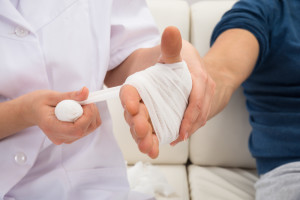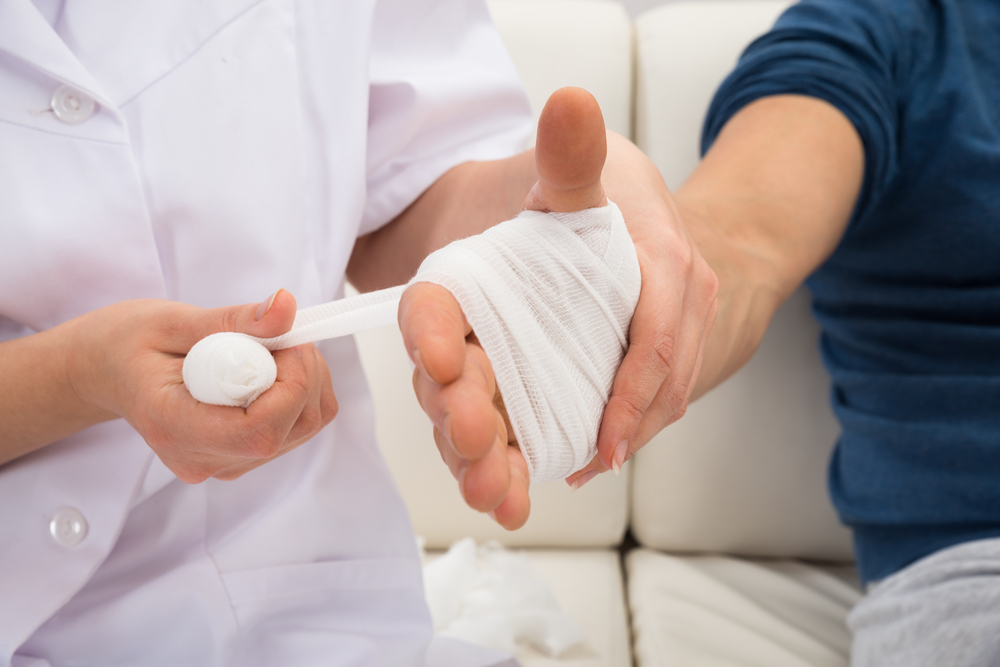 Here’s a test to see how fast you can untie your shoes. You can use both hands, but you can’t use your thumbs. Not so easy, is it? And, yet, do you realize that 25% of all disabling injuries involve hands and fingers?
Here’s a test to see how fast you can untie your shoes. You can use both hands, but you can’t use your thumbs. Not so easy, is it? And, yet, do you realize that 25% of all disabling injuries involve hands and fingers?
Common Causes of Hand Injuries
What are some of the common causes of injuries to hands and fingers, most of which usually are preventable? They include hammer strikes, being pinched between objects being moved, cut by sharp objects, pierced by splinters and slivers, burned by hot objects or chemicals, and caught in moving machinery.
Gloves: A Prime Means of Protection
As long as your skin remains unbroken, it can keep germs out. Once it’s opened by a scrape or cut, however, germs can get in and infection can result unless you get proper treatment. And no matter how rugged you think your hands may be, they aren’t tough enough to stop splinters, slivers, or to resist punctures. That’s why gloves are important. They’re like an extra layer of skin. The nail that rips your glove would have injured you if your hand had been bare. Wear gloves whenever you are handling rough or sharp material. Use rubber gloves when working with chemicals, solvents, or other material that can irritate your skin. Wear gloves that fit properly. Also, remember that gloves shouldn’t be worn when there is a possibility they can get caught in moving machinery.
Guards Are Hand Savers
Guards on power saws and other equipment sometimes seem like a nuisance, always getting in the way. But they’re on the equipment to protect you against injury. By removing guards or otherwise making them ineffective, you increase your chances of getting hurt. Tie one hand behind your back for a day and you’ll appreciate what the consequences of working without a guard can be.
Other Dangers
Many hand injuries occur even when you are wearing gloves or using guards. Be alert to these dangers, too. Such injuries can result from the unexpected shifting of material, getting hands caught in pinch points, grabbing moving parts of the machinery, or holding work in the hands that should be held in a vise or securely clamped.

